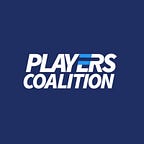In the wake of George Floyd, Police Must be Held Accountable
By Black Players for Change
We are only a few days into the trial of Derek Chauvin, the former Minneapolis police officer who killed George Floyd last May, and emotions are high. The rarity of such a proceeding against a cop, combined with the poor success rates of securing a conviction in these cases, makes for an anxiety-ridden and, at times, re-traumatizing experience for many Americans, particularly Black Americans. That’s because police officers and police departments have rarely been held accountable for the violence they’ve inflicted upon our communities. Despite existing local, state, and federal laws and policies that purport to constrain police violence and protect us from unnecessary harm, police officers have continued to inflict it. They continue to critically injure and maim people unnecessarily, and get away with it. They continue to shoot unarmed Black and Brown people and get away with it. They continue to target and harass marginalized people — people of color, people with disabilities, people who are gender non-conforming, women, poor people — and get away with it.
For decades, our mechanisms of accountability have failed to apply equally to law enforcement. Not only have police officers avoided arrest or conviction of crimes when they’ve engaged in wrongdoing, but they’ve also managed to escape civil liability or even sanctions for misconduct by their employers. Rather than fix this imbalance, our local, state, and federal governments have only widened it, extending even greater protections to members of law enforcement, funneling even more money into police departments’ already bloated budgets, and equipping officers with even more dangerous, war-grade weapons to use at their disposal.
Our over-protection of law enforcement and under-protection of those harmed by their abuses has to end, and it has to end now.
When George Floyd was killed before our very eyes, while we were all quarantined at home amid a deadly pandemic and couldn’t look away, we were horrified. Truly, we — the entire country — were horrified and outraged by what we saw. There was little of the usual hemming and hawing from the “wait and see all the evidence” crowd; fewer people had the audacity to say George Floyd should have simply “complied with the officer’s commands.” People actually seemed to accept that, this time, the unarmed Black person killed by the police did not deserve what had happened to him. The officer had crossed the line. This was murder. And while the city of Minneapolis reached a record $27 million civil settlement with the Floyd family, nothing can bring him back.
For the entirety of that fateful summer, hundreds of thousands of people took to the streets, calling for immediate reforms to police departments across the country. And in many cities, elected officials responded to the calls with acknowledgments of harms and promises of change. As we near the anniversary of his death, Minneapolis City Council members are now one step closer to the vote that would overhaul its police department this fall. Where there had once been skepticism about police violence and systemic racism in policing, there was now overwhelming endorsement and a newfound belief that these claims were true, valid, and believe it or not, actionable. From presidential candidates and professional athletes to major American corporations and consumer brands, everyone was of one accord: our country has a flaw in the criminal justice system.
There was a palpable feeling in the air that we were on the cusp of change — real, transformational change. For Americans, especially Black Americans who have lived through some of our country’s worst racial injustices, the summer of 2020 inspired hope that we might finally be on the path to healing and reconciliation, a destination that has eluded the United States for far too long. The truth of our past racial injustices is often overlooked, and our failure to confront or examine this history has halted our ability to properly respond to the racial injustices we see today. We simply do not have the playbook — because we never took the time to develop one — for how to transition from tragic human rights abuses perpetrated by our very own government to a reconciled, healed, and united nation. Although reaching this point of reckoning and reconciliation is long overdue, now is better than never.
The streets may be calmer, the news cycles may be quieter, and the hashtags may no longer be trending, but we still have a policing problem in America. And we always will unless we find and sustain the courage to fix it.
